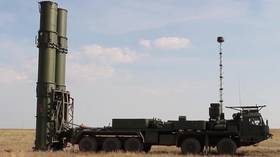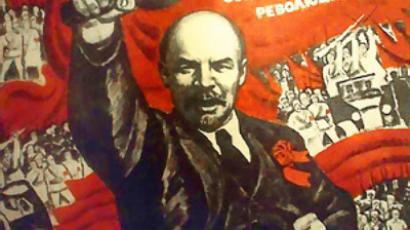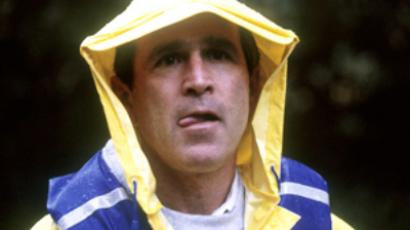Top 10 political bio-pics

Many great political figures have been portrayed on the big screen, revealing power, passion, scandal and stoicism. Here is RT’s list of the top ten political bio-pics of all time.
1. The Queen (2006)
Stephen Frears’ drama stars Oscar-winner Helen Mirren as Queen Elizabeth II in the wake of the tragic death of Lady Di. Contrary to everyone’s expectations, The Queen and The Establishment decide not to honor the "People's Princess" as a member of the Royal Family. The newly-elected PM Tony Blair (Michael Sheen) tries to build bridges between the Queen and the public.
Helen Mirren was quoted as saying that playing the Queen came naturally to her, as she had watched film and video footage of Elizabeth II and kept a number of her photographs in her trailer during production. Large parts of the film feature real life images, including footage of several of Diana's press conferences, scenes from outside Buckingham Palace after the death of Diana, her mourning and funeral, featuring appearances by Elton John, Nicole Kidman and Tom Cruise.
2. Nixon (1995)
Oliver Stone is said to be one of the most outspokenly political and daring American filmmakers. His three-hour-long epic biography of the 37th President of the US, Richard Nixon, is just further proof of Stone’s political savvy. The drama focuses on Nixon’s upbringing by his uncompromising Quaker mother, the ups and downs in his political career, and his downfall in the wake of the Watergate scandal. The facts are often mixed with speculation and rumor, however, creating a picture somewhat critical and sympathetic of Nixon, who was played by Anthony Hopkins.
3. JFK (1991)
The assassination of America’s 35th president has long raised many questions. Oliver Stone offered his answers to some of them. Despite harsh criticism from historians and politicians, JFK gave those interested in the mysterious circumstances surrounding the death of President John F. Kennedy some food for thought. Following the film’s overwhelming box-office success and eight Oscar nominations, US authorities decided to unveil several secret files related to Kennedy’s assassination. The movie focuses on New Orleans district attorney Jim Garrison, played by America's heart-throb Kevin Costner, and his investigation into the links between businessman Clay Shaw (Tommy Lee Jones) and the alleged assassin Lee Harvey Oswald (Gary Oldman).
4. Charlie Wilson's War (2007)
The Hollywood drama with Tom Hanks in the lead is based on a true story set in the early 1980s. Charlie Wilson is a congressman from Texas who is keen to bring the Cold War to an end. Encouraged by his ardent supporter, played by Julia Roberts, Wilson is ready to bring the Soviet Union to its knees. As he finds out about the sufferings of people trapped during the Soviet occupation of Afghanistan, Wilson decides to supply the Afghan militants with the weapons to defeat the Soviet Union once and for all. At some point, however, Charlie Wilson realizes that his plan is not flawless.
5. “W” (2008)
Oscar-winning director Oliver Stone couldn't help making a film about George W. Bush, often referred to as America's worst president. His drama focuses on the political and personal evolution of the 43rd president. The 61-year-old Stone was burning the midnight oil to release the film before the November election. Josh Brolin (starring as President Bush) had to spend days and nights studying and mimicking the president's speech and his trademark body language. Brolin was quoted as saying, however, his primary objective was not to make a parody of Bush, but to convey his inner voice and one-of-a-kind intonation: "Where is my place in this world? How do I get remembered?"
6. Milk (2008)
One of America's most controversial directors, Gus Van Sant, made a film based on the true story of the first openly gay politician elected to major public office.
A gay-rights activist, Harvey Milk (played by Sean Penn), moved to San Francisco from his native New York in the early 1970's to wage a war against discrimination. Several years later, he was elected to the city's governing body. However, Milk and the city's mayor were shot to death by a former city supervisor, Dan White, who accused his former counterparts of denying his attempt to annul his resignation from the board.
Milk has been the subject of several books and the Academy Award-winning documentary feature “The Times of Harvey Milk”. Critics say Sean Penn was a shoo-in for another Best Actor Oscar for his portrayal of Harvey Milk.
7. Queen Margot (1994)
The drama, set on August 24, 1572, describes the bloody events during the notorious night of the Massacre of St. Bartholomew. The film, starring one of France's most talented and beautiful actresses, Isabelle Adjani, focuses on the tragic lives of the Catholic Queen Margot and her Protestant husband Henri. While a religious war is raging in France, so are the intrigues, betrayals and murders. French politicians are ready to go to any extremes in order to impose peace in the country.
8. The Last King of Scotland (2006)
Although seen through the eyes of a fictional character, Dr Nicholas Garrigan, this film is quite faithful to events in the life of Ugandan dictator Idi Amin. Forest Whitaker won a Best Actor Academy Award for his portrayal of one of the 1970s most colorful, and notoriously brutal, despots. The film culminates in the dramatic siege at Uganda’s Entebbe airport, during which Palestinian terrorists hijacked an Air France jet full of Israeli passengers. The hostages were holed up in the airport terminal until liberated by Israeli paratroopers in a famously daring and well-orchestrated raid. The drama of the siege and the sheer menace of a tyrant are magnificently captured.
9. Ivan the Terrible Part I (1944)
Legendary Soviet director made this epic with his country in the grip of a catastrophic war, conveniently timed to inspire a nation. Ivan the Terrible was one of Stalin’s great heroes, so it probably wasn’t hard to gain approval for the film’s production. The film follows Ivan IV, eventually known as “the Terrible” (a term with the added sense of “awe-inspiring”), from his coronation and vow to unite and protect Russia from the foreign armies roaming her land, through his liberation of the city of Kazan from the Tatar Yoke, and his uneasy struggles with conspiracies and intrigues.
The Ivan of the film has a booming, deliberate mode of speech, conveying his authority and great leadership, and is often portrayed in dramatic poses. There are some unpleasant scenes depicting some of the brutality for which the Tsar is still famous, but the denouement of the film – in which Ivan abdicates but his subjects call for his return – shows how much the Russian people love a powerful leader. At least that’s the inferred message.
10. Lumumba (2000)
Europe divided the African continent at the Berlin Conference back in 1885. As as result, the Congo became the personal property of King Leopold II of Belgium. In 1960, a young nationalist, Patrice Lumumba, became the first head of government of the newly-independent state. Although he would only last two months in office, he made an impact on the politics of the Republic of Congo. This is a true story. The film’s director, Haitian-born Raoul Peck, describes the tragic and passionate life of Patrice Lumumba, the Congo's first and last popularly-elected prime minister, from his quick rise to power to his brutal murder.














